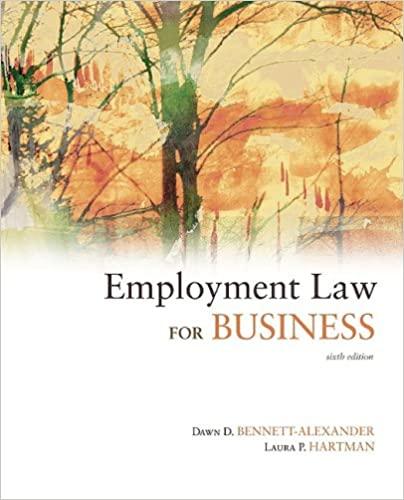Answered step by step
Verified Expert Solution
Question
1 Approved Answer
Part A: For policy reasons, a private person may, in times of necessity, interfere with another's right to exclusive possession of real or personal property
- Part A:For policy reasons, a private person may, in times of necessity, interfere with another's right to exclusive possession of real or personal property without permission, such as by docking a boat in a storm. Courts vary with regard to whether or not this "public necessity" constitutes a trespass. But even the trespass defendant will be shielded from nominal and punitive damages. However, he or she may be held liable for compensatory damages, such as to repair a dock.
- Argue whether or not compensatory damages should be paid.
- See both the majority opinion and the dissent in Vincent v. Lake Erie Transportation at 124 N.W. 221 (Minn.1910) and at p. 769 of your text.
- Part B:A church plays its bells over speakers three (3) times a day and four (4) times on Sunday. A woman suffering from migraine headaches sought to enjoin the church from playing its bells because the bells aggravated her headaches, causing anxiety and emotional distress. In this situation, determine if playing the bells interferes with the rights protected by either private nuisance or public nuisance and support your position. See Pestey v. Cushman at 788 A. 2d 496 (Conn. 2002) and at p. 778 of your textbook.
Step by Step Solution
There are 3 Steps involved in it
Step: 1

Get Instant Access to Expert-Tailored Solutions
See step-by-step solutions with expert insights and AI powered tools for academic success
Step: 2

Step: 3

Ace Your Homework with AI
Get the answers you need in no time with our AI-driven, step-by-step assistance
Get Started


